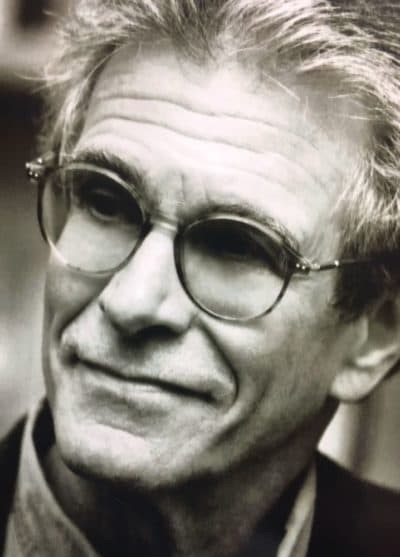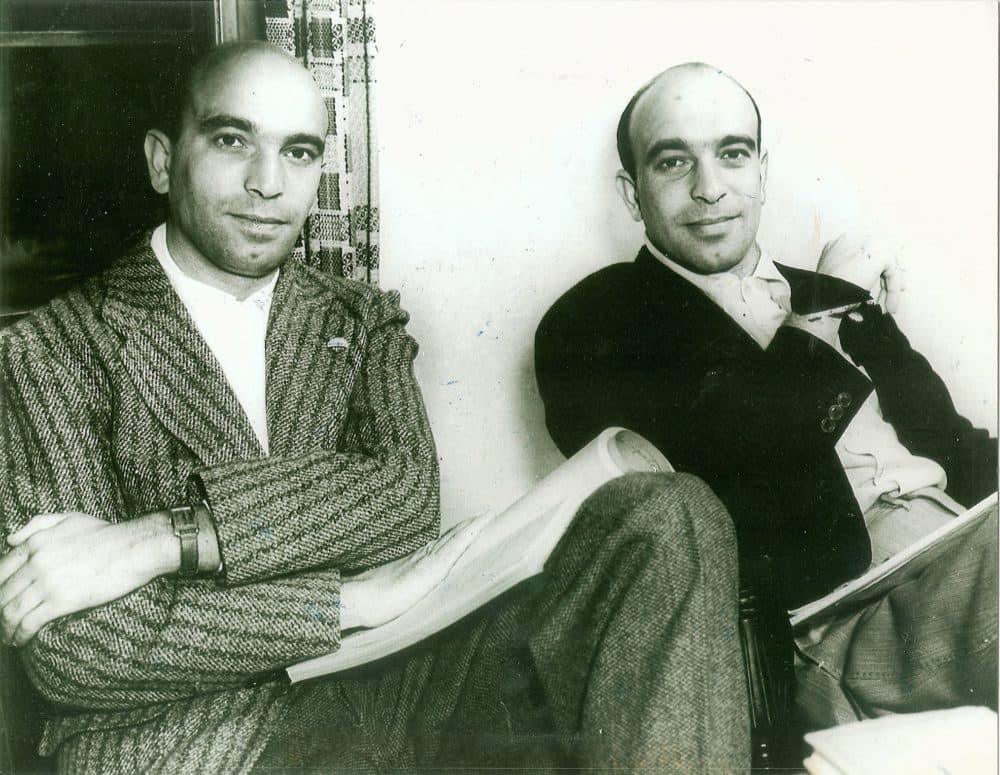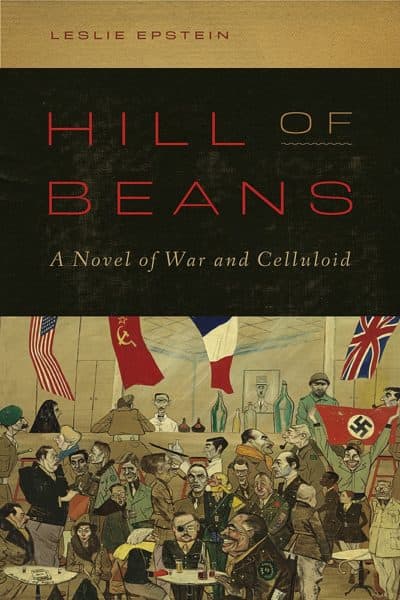Advertisement
'Casablanca' Production Woes Inspire Author Leslie Epstein’s Fictional Farce 'Hill Of Beans'
You must remember this, because the story of how “Casablanca” came to be is one of Hollywood’s most oft-told tales. Legends of daily script rewrites and actors standing around on set waiting to find out whether or not Bogie was gonna get on that plane with Ingrid Bergman have filled dozens of retrospective television specials, DVD extras and countless books about the troubled shoot. (I’ve got at least two in the other room.) Those who already know that Ronald Reagan and Ann Sheridan were originally announced as Rick and Ilsa might wonder if yet another book about the making of this American classic could possibly offer anything new, but Leslie Epstein’s “Hill of Beans: A Novel of War and Celluloid” is hardly the same old story. It’s a blisteringly funny, fictional farce using the film’s famous production woes as the backdrop for a bawdy espionage adventure boasting an all-star cast of world leaders and movie industry icons, with the fate of the free world hanging in the balance.

This is a gleefully irreverent book, presenting Old Hollywood as a parade of pushovers and oversexed goons with unchecked libidos and uncomfortably undue influence on political figures. It’s familiar family territory for Epstein, whose father Philip and uncle Julius co-wrote “Casablanca” and contributed quips to dozens of other classics including “Yankee Doodle Dandy” and “Arsenic and Old Lace.” The Epstein twins pop up briefly here and there throughout the book to annoy the main character, Warner Bros. vice president of production Jack L. Warner, an astoundingly vulgar and vindictive man doing his darndest to make sure the Allied invasion of North Africa is timed to promote his latest prestige picture.
The 82-year-old author teaches fiction at Boston University, where he directed the creative writing program for more than 35 years. (Former students include Jhumpa Lahiri and Ha Jin, and you can thank his son Theo for two of those Red Sox World Series trophies.) “Hill of Beans” is Epstein’s 10th novel, and the intertwining of career-long fixations on WWII and Hollywood. “The two twin literary and personal interests of my life, so sooner or later they were going to get combined in one book,” he told me on the phone. “This is sort of the capstone or the culmination of the energies and interests in all of my work.”
The novel switches first-person perspectives multiple times within chapters, leaping back and forth in time, giving us stream-of-consciousness narrations from a cavalcade of colorful characters both real and imagined. The dizzying effect feels akin to a mashup of James Ellroy’s “American Tabloid” and the Coen brothers’ backlot burlesques like “Barton Fink” or “Hail, Caesar!” with a hint of Quentin Tarantino’s revisionist history blowouts. Most of the men in the story are hung up on a starlet with a secret named Karelena Kaiser, who has admirers all along the Axis and a hidden agenda all her own. Meanwhile, gossip columnist Hedda Hopper is feeding information to Joseph Goebbels when she’s not sneaking away with Warner’s Turkish prizefighter bodyguard. From FDR to Joseph Stalin, everyone in the book is hilariously hypocritical and extremely horny. They also tell some pretty bad jokes.
“I know I’m gonna get in trouble for them,” the author concedes with a heavy sigh. “A lot of the jokes are terrible jokes. But they’re jokes of their time. If you have an historical imagination, and that’s what the book demands — in fact, it’s what every work of art demands, in fact, it’s what life demands — If you have an historical imagination then A) you won’t rename Abraham Lincoln high school, right? And B) you’ll be open to this book and other books that try to deal honestly with the times that they’re writing about.”
Epstein offers a telling anecdote regarding a letter his father and uncle sent during the writing of “Casablanca” to producer Hal Wallis. It was reprinted in Noah Isenberg’s 2017 bestseller “We’ll Always Have Casablanca: The Life, Legend and Afterlife of Hollywood’s Most Beloved Movie,” albeit with a notable excision. According to Epstein, the twins’ letter ended with them telling Wallis, “‘Meanwhile, you should be looking for a European girl to play Ilsa,’ and then they wrote ‘Oh hell, an American girl with tits will do.’”

After pausing to let me finish chuckling, he continues, “I laughed, too. I think it’s wonderfully emblematic of the times. I don’t think it’s so terrible. I don’t think any woman of the time would have found it so terrible… But [Isenberg] cut out that line! I was furious with him. I said, ‘Noah, you’ve ruined the flavor of the letter!’ He said, ‘Oh, I’ll put it back in the paperback,’ and then he didn’t. So those are the times we live in.”
There’s no shortage of such flavor in “Hill of Beans,” which makes us privy to the scandalously uncouth internal monologues of its multiple narrators to hysterical and sometimes troubling effects. Warner sees the world through prism of priapism, and an ogre though he may be, we grow to have a weird respect for the indefatigable studio head as the book wears on. It’s a process that was echoed in the writing. “To me, he’s certainly a monster,” Epstein explains. “He was a creature of his times, but even worse than his times. My father and uncle knew it, they let him have it… On the other hand, reading about him, I began increasingly to have a kind of grudging admiration for him. And then, to tell you the truth, a kind of fondness.”
In 1934, when the Reich demanded that American studios fire all the Jewish employees in their Berlin offices, Warner closed his down instead, sacrificing their second-highest grossing market while his competitors capitulated. “He just closed it. He had none of it. He would not be bullied by Goebbels,” Epstein enthuses. “Paramount hung on until Pearl Harbor!” In 1939, Warner released “Confessions of a Nazi Spy,” the first explicitly anti-Nazi movie produced by a Hollywood studio, in spite of an assassination attempt during filming by an on-set saboteur. “A sandbag fell on set and barely missed Edward G. Robinson’s nose.”

In its own anarchically amusing fashion, “Hill of Beans” is about how sometimes to defeat an Axis we need the help of imperfect Allies. Later in the book, Gen. George S. Patton shows up and unleashes some virulently anti-Semitic rants that rival anything we’ve heard from the Nazis. “There it is,” exclaims the author. “He was worse than Warner. He was a great general but a truly terrible man. But you know, life’s complex and people are complex. And now I think the harpies of our age are forgetting that. Life’s a lot more complex than they know.” Indeed, for all the naughty jokes and ribaldry the novel still contains a deadly serious undercurrent, one perhaps inextricable from its subject matter.
Goebbels makes a chilling exit from the story with a proclamation from his diaries, that the ideals of the Third Reich will return in 50 years. “He actually wrote that on the day before he shot himself,” Epstein informs me. “Look what’s happened all across Europe. Fascist parties are rising. In Poland, in Hungary, in Turkey. France now, I don’t know if Macron can hang on. In England with the Brexit movement, and of course in America. What else does Trump represent but a kind of neofascist party? It’s always been there in America — the Know-Nothings, the Ku Klux Klan. But we never had a president who winked and nodded, and in the end inspired them. I think Goebbels was all too prescient, but he was off by 20 years.”
“Hill of Beans: A Novel of War and Celluloid” will be released on Monday, March 1. Brookline Booksmith is hosting a free virtual launch event with author Leslie Epstein and film critic A.S. Hamrah that evening at 7 p.m.
